
MBTAAnalysis: A look inside the MBTA
0 Comments
/
The MBTA shuttles over a million passengers a day around Greater…
 https://pioneerinstitute.org/wp-content/uploads/CloseupClock-1.jpg
739
1244
Mary Connaughton
https://pioneerinstitute.org/wp-content/uploads/logo_440x96.png
Mary Connaughton2017-02-20 12:34:192017-02-21 09:47:58The Clock is Ticking…….
https://pioneerinstitute.org/wp-content/uploads/CloseupClock-1.jpg
739
1244
Mary Connaughton
https://pioneerinstitute.org/wp-content/uploads/logo_440x96.png
Mary Connaughton2017-02-20 12:34:192017-02-21 09:47:58The Clock is Ticking…….
Study Finds MBTA Operating Costs Surging Since Control Board’s Elimination
In the years since fiscal 2018, when the MBTA last balanced its budget without state contract assistance or federal funds, operating costs have been rising at an alarming rate, culminating in an increase of nearly 15 percent from FY 2023 to FY 2024 alone, according to a new policy brief published by Pioneer Institute.
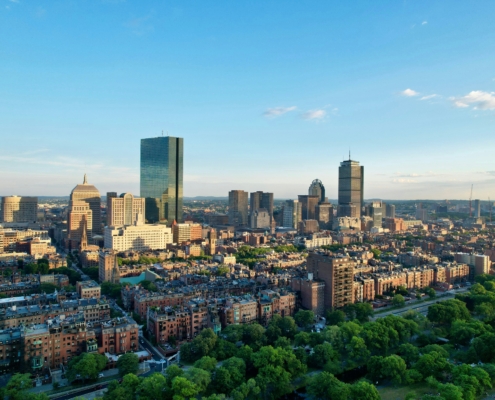
New Report Shows Massachusetts Has Been in Economic Slow Down Since 2020
A new report from Pioneer Institute shows that Massachusetts has been in an economic slowdown since 2020, with the professional, scientific, and technical services sector (PSTS) exhibiting the greatest slowdown relative to competitor states since 2022. This sector includes scientific research and development, computer systems design, engineering, and scientific consulting firms.

Connecticut’s H.B. 5002: A Stark Contrast With Massachusetts’ Approach to Housing Reform
This edition of The House Call discusses a pending bill in Connecticut that both requires municipalities to plan for more affordable housing and preempts local zoning rules on small multi-family buildings and parking requirements. The newsletter also explores the possible effects of banning landlords from imposing "broker's fees" on residential tenants.

New Study Cautions: Rent Control Offers Short-Term Relief, But Steep Long-Term Costs
A new Pioneer Institute study finds that while rent control can lower rental housing costs and help vulnerable tenants remain in their homes, it also carries steep long-term consequences—including reduced housing quality, lower property values, fewer new housing units, and higher rents for non-controlled apartments.

New Report Warns: Massachusetts Facing Alarming Decline in Private Sector Employment Growth
While nearly every state has expanded private sector employment since the onset of the COVID-19 pandemic, Massachusetts is an outlier in experiencing a net decline in private sector job growth, posing significant risks to the state’s economic health and long-term prosperity, according to a new policy brief published by Pioneer Institute.
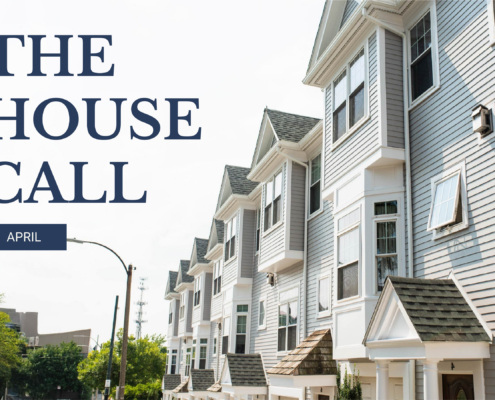
Massachusetts Releases New Permanent Regulations for MBTA Communities Act
The April edition of The House Call provides an update regarding the MBTA Communities Act's implementation, with some communities amending their zoning via either referendum votes or Town Meeting this spring. The newsletter also includes a discussion of communities that have eliminated minimum parking requirements in recent years.

Historical Domestic Migration Patterns: Putting Massachusetts in Context
This week's edition of Mapping Mass Migration features an analysis of newly released data from the Census Bureau, its March supplement of the Current Population Survey. Our analysis covers how migration trends have played out nationally since 1948, including the demographics of movers, the extent of their migration (within a county, across counties, to another state, etc.), and the most common reasons movers cite for changing their primary residence. The newsletter concludes with a brief discussion of what might account for a decline in overall migration rates nationally and where Massachusetts fits in.
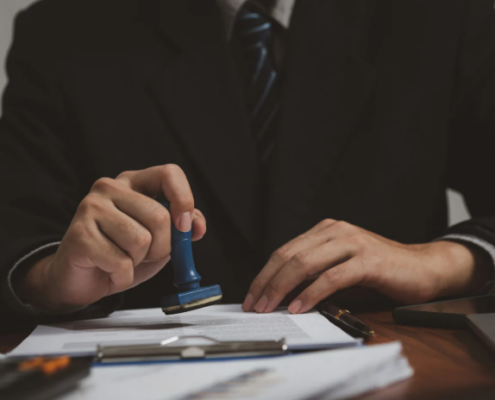
Pioneer Institute Study Finds Outdated U.S. Immigration System Delays Creation of 150,000 Businesses and 500,000 Jobs
Global competitors seizing opportunities to attract top talent
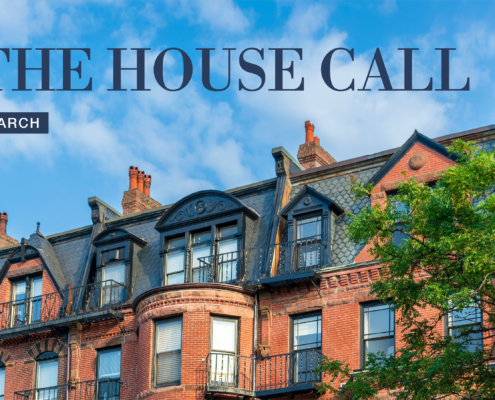
The House Call – Cambridge Adopts a Zoning Ordinance Allowing 4 to 6-Story Residential Buildings Citywide
The March edition of The House Call covers recent zoning changes in Cambridge that allow 4 to 6-story buildings on every residential lot. It also summarizes reform recommendations from a state commission tasked with advising the Healey administration on how to ramp up housing production.

Study: Inclusionary Zoning Helps Some, but Can Jeopardize Broad-Based Affordability
Policies often force developers to raise market-rate prices to compensate for losses on affordable units

Pioneer Institute Study Says MA Housing Permitting Process Needs Systemic Reform
Highlights Bureaucratic licensing process and appeals as areas to fix
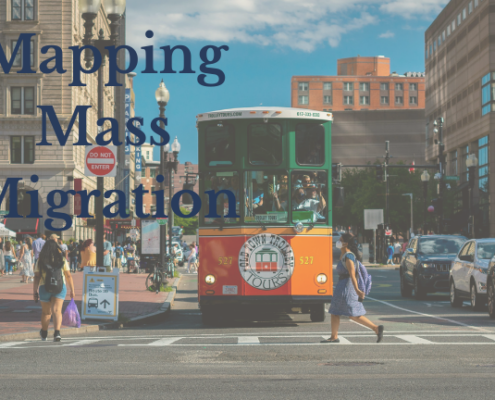
Mapping Mass Migration – New 2024 Census Estimates Show Surge in Population Growth, With Considerable Caveats
This week's edition of Mapping Mass Migration will cover 2024 state population estimates and components of change from the Census Bureau, how trends are impacting Massachusetts, and an analysis of how a methodological change significantly impacted their estimates for net international migration from 2022 to 2024 and what that means for the number and demographic backgrounds of immigrants captured in the data.

Study Finds Bump in State Population Due to Changes in Census Bureau Methodology
BOSTON – State leaders cheered in January when the U.S. Census Bureau estimated that Massachusetts’ population grew by 69,000 in 2024, more than at any other time in 60 years. Unfortunately, a closer look reveals that the higher estimates are largely driven by a change in Census Bureau methodology designed to better capture the influx of humanitarian migrants.

The House Call – Accessory Dwelling Units are Officially Legal Statewide in Massachusetts
This issue of The House Call covers Massachusetts' recent legalization of accessory dwelling units, as well as a bill filed in the state legislature last month that would broadly prevent localities from enforcing certain housing-related regulations.

Pioneer Institute Study Compares MA Workforce Development System to Those in Peer States
(Boston, Mass) - As Massachusetts has significantly increased investment in a myriad of workforce training programs to better compete for talent, a new Pioneer Institute report examines the Massachusetts workforce development system to determine what operational changes would better maximize results, and it compares the system to those in peer states.

Mapping Mass Migration: New England State and County Population Change, 2020 to 2023
This week's edition of Mapping Mass Migration will cover state and county population change in Massachusetts and New England from 2020 to 2023, how population has shifted for major demographics during that period, and how population change in general fits into the broader picture of a state's economic wellbeing.
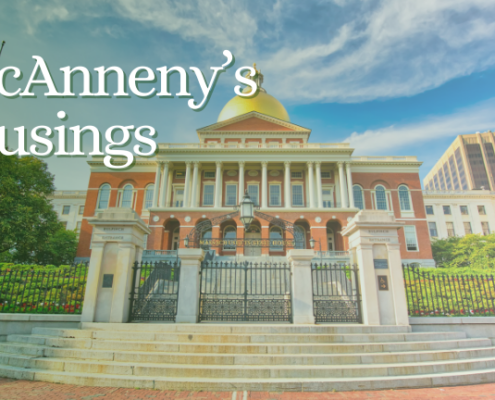
McAnneny’s January Musings – Legislative Transparency Takes Center Stage in the New Year
A new year unfolds with so much promise. It offers us all a fresh start, a clean slate, a reset. It is a time for reviewing, reassessing and revising.

Video Statement of Frank J. Bailey (Ret. Honorable), President of Pioneer Public Interest Law Center
Frank J. Bailey, President of the Pioneer Public Interest Law…

The House Call – January
This issue of The House Call covers the implementation of Boston's energy efficiency standards for large buildings. It also provides an update on the MBTA Communities Act after a busy fall Town Meeting season featuring rezoning votes, forced referenda, and - more recently - the SJC's Milton case decision.

Mapping Mass Migration – Remote Workers: The Most Mobile Residents
This week's edition of Mapping Mass Migration will cover…

Statement on MBTA Communities Law Milton Ruling
Today, the Massachusetts Supreme Judicial Court ruled that the…

Mapping Mass Migration: Massachusetts Remains a Top Destination for Immigrants
This week's edition of Mapping Mass Migration will cover foreign migration into Massachusetts in 2023 and since 2010, including an examination of the most and least attractive destinations for immigrants by state, a demographic breakdown of immigrants arriving in Massachusetts, and an analysis of how these trends have changed over time.

Mapping Mass Migration: New Census Data Shows Continued Out-Migration from Massachusetts to Competitor States
"Mapping Mass Migration" is Pioneer's new newsletter covering…

Pioneer Institute Offers Blueprint for Federal Administrative Reform
Proposed changes to rulemaking and grantmaking will boost accountability and state policy innovation

The House Call – Mayor Wu Wants to Overhaul Boston’s Arcane Development Approvals Process? Here Are Three Reform Options
Pioneer Institute is debuting The House Call, a monthly newsletter covering housing-related news and market trends in Massachusetts. The first issue explores reform options for Boston's arcane development approvals process and major reform items from the state's November 2024 economic development bill. Read our December issue today!

Pioneer Institute Releases Examination of Metropolitan Housing Markets; Obtains Insights Into Improving Affordability
Boston, Mass. – A Pioneer Institute review of reforms enacted in metropolitan areas across the country finds that to achieve more affordable housing in the coming decades, Greater Boston should focus on policies such as making it easier to build small multi-family projects, retrofit commercial areas with new housing, and loosen parking and minimum lot size requirements.

FY2026 Consensus Revenue Hearing – Forecasting of Revenues is Tricky Business
The next major event on the legislative calendar is the FY2026…

Pioneer Institute Study Finds Massachusetts Saw Four-Fold Loss of Income to Net Outmigration
Net loss accelerated in recent years; main reasons include high taxes, housing and healthcare

Massachusetts Job Market Bears Watching
The Bureau of Labor Statistics' most recent national jobs report…

McAnneny October Monthly Musings – Ballot Initiatives
Election season is upon us. In a few short weeks, voters will…
